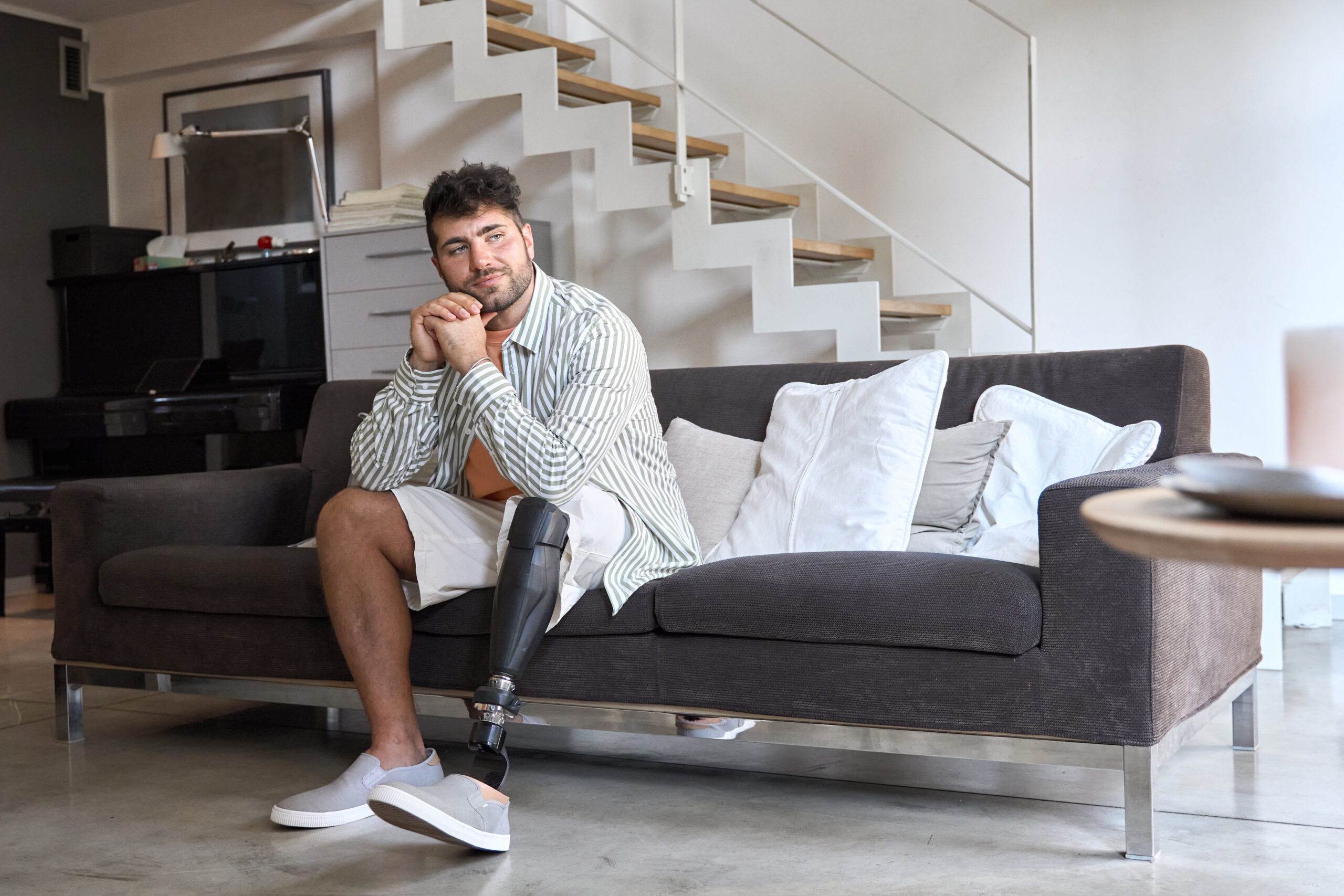Welcome to WordPress. This is your first post. Edit or delete it, then start writing!
The Mental Health Impact of Amputation:
Understanding the Emotional Journey
Losing a limb is more than just a physical transformation—it is an emotional and psychological journey that can significantly impact a person’s mental health. While advancements in prosthetics and rehabilitation therapies provide hope for regaining mobility, the emotional adjustment to limb loss is often an ongoing process. Understanding the mental health concerns associated with amputation is crucial in providing the right support and fostering resilience.
The Emotional Toll of Limb Loss
Amputation can trigger a wide range of emotions, from shock and denial to grief and acceptance. The process is similar to mourning a loved one—the limb was a part of the body, and losing it can feel like losing a piece of one’s identity. It’s normal for individuals to experience:
Grief and Depression: Feelings of sadness and loss are common after an amputation. Some individuals may experience clinical depression, characterized by persistent feelings of hopelessness, loss of interest in activities, and changes in sleep or appetite.
Anxiety and Fear:Worries about the future, mobility challenges, and societal perceptions can lead to heightened anxiety. Concerns about independence, employment, and relationships can add to this stress.
Phantom Limb Pain: The sensation of pain or discomfort in the missing limb can be distressing and frustrating, contributing to emotional exhaustion.
Body Image Issues: Adjusting to a new physical appearance can be difficult. Some individuals may struggle with self-esteem and fear how others will perceive them.
Post-Traumatic Stress Disorder (PTSD): If the amputation was caused by trauma, such as an accident or combat injury, PTSD symptoms—flashbacks, nightmares, and severe anxiety—may develop.
Coping Strategies for Mental Wellness
While the emotional impact of amputation can be overwhelming, there are strategies and support systems that can help individuals navigate this journey:
1. Seek Professional Mental Health Support
Therapists, psychologists, and counselors specializing in trauma and disability can help individuals work through grief, anxiety, and depression. Cognitive Behavioral Therapy (CBT) and mindfulness techniques have been particularly effective in managing negative emotions and stress.
2. Connect with Peer Support Groups
Engaging with others who have experienced limb loss can provide a sense of community and understanding. Support groups, both in-person and online, offer a platform to share experiences, tips, and encouragement.
3. Focus on Physical Rehabilitation and Mobility
Regaining independence through physical therapy and adaptive tools can boost confidence. Learning to use prosthetics or assistive devices can empower individuals to reclaim their mobility and self-sufficiency.
4. Address Phantom Limb Pain
Managing phantom limb pain through medication, mirror therapy, or alternative treatments like acupuncture can improve overall well-being and reduce frustration.
5. Cultivate a Positive Mindset
Practicing gratitude, setting small goals, and celebrating progress can shift focus from loss to achievement. Engaging in hobbies, social activities, and mindfulness practices can help foster resilience.
6. Educate Family and Friends
Loved ones play a crucial role in the emotional recovery process. Open conversations about the challenges of limb loss can help create a supportive and understanding environment.
Moving Forward: Finding Strength in Community
Adjusting to life after an amputation is not just about learning to move differently—it’s about redefining oneself. While the mental health impact can be challenging, support, adaptation, and resilience can pave the way for a fulfilling life. Seeking help, leaning on community, and embracing personal growth can turn an experience of loss into one of strength and newfound purpose.
If you or someone you know is struggling with the emotional impact of limb loss, remember that help is available. Connecting with mental health professionals, support groups, and organizations dedicated to limb loss can make all the difference in the journey to healing and acceptance.


Comments are closed!